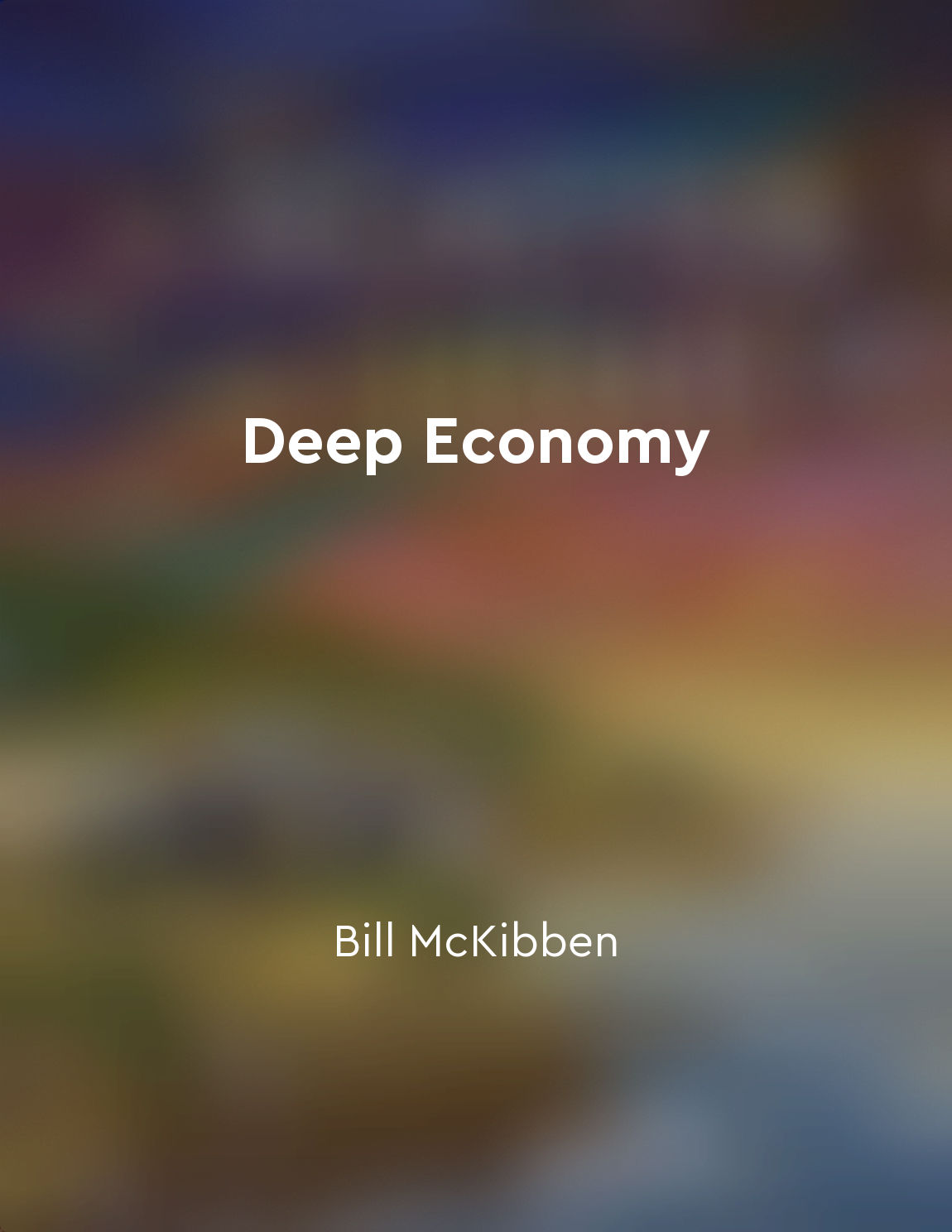Encouraging policy changes can expand opportunities for urban agriculture from "summary" of Breaking Through Concrete by David Hanson,Edwin Marty
Urban agriculture holds great potential for addressing food insecurity, creating economic opportunities, and fostering community engagement. However, the success of urban agriculture initiatives heavily depends on the policies and regulations that govern them. Encouraging policy changes can be a powerful tool in expanding the opportunities for urban agriculture and overcoming the barriers that currently hinder its growth. One key aspect of policy change is zoning regulations. Many cities have zoning laws that restrict or prohibit agricultural activities in urban areas. By revising these regulations to allow for urban agriculture, cities can create more space for community gardens, rooftop farms, and other agricultural projects. This not only increases the physical space available for urban agriculture but also legitimizes these activities in the eyes of the law. In addition to zoning regulations, access to land is another crucial factor for the success of urban agriculture. Cities can support urban agriculture by creating programs that make vacant lots and underutilized spaces available for farming. By providing opportunities for land tenure and access, cities can empower individuals and communities to engage in agricultural activities and increase local food production. Furthermore, policies related to water use, waste management, and food safety can also impact the viability of urban agriculture. By developing regulations that support sustainable water practices, encourage composting, and ensure food safety standards are met, cities can create a more conducive environment for urban agriculture to thrive. These policies not only benefit urban farmers but also contribute to the overall health and sustainability of the city.- Policy changes play a critical role in shaping the landscape of urban agriculture. By advocating for regulations that support and encourage urban agriculture, cities can unlock the full potential of this practice and create a more resilient and food-secure urban environment. Through strategic policy interventions, urban agriculture can become a driving force for positive change in cities around the world.
Similar Posts
Economic geography is a key aspect of the syllabus
Economic geography, being a key aspect of the syllabus, plays a crucial role in understanding the spatial patterns of economic ...

Carbs are not all bad
Carbs have gotten a bad rap in recent years. We've been told to avoid them at all costs if we want to be healthy and fit. But t...

Shift towards sustainable practices
The shift towards sustainable practices is a fundamental transformation that our societies urgently need to embrace. It involve...

Labor outsourcing
Labor outsourcing is a practice where companies hire external workers to perform tasks that were traditionally carried out by t...
Modern food industry has prioritized profits over health
The food industry has made a conscious decision to prioritize profits above all else, including the health of consumers. This d...
Artificial sweeteners should be avoided
Artificial sweeteners are often touted as a healthier alternative to sugar, but the truth is they can actually be harmful to ou...
Mostly plants
The key to a healthy diet, according to the guiding principle of "Mostly plants," is to focus on plant-based foods. This means ...

Balance omega3 and omega-6 fats for inflammation control
To keep inflammation under control, we must pay attention to the balance of omega-3 and omega-6 fats in our diet. These two typ...
Role of monetary policy in economic stability
Monetary policy plays a crucial role in maintaining economic stability by influencing the money supply, interest rates, and inf...

Nature is the ultimate economy
From the intricate web of life in a forest ecosystem to the delicate balance of coral reefs in the ocean, nature operates on a ...

